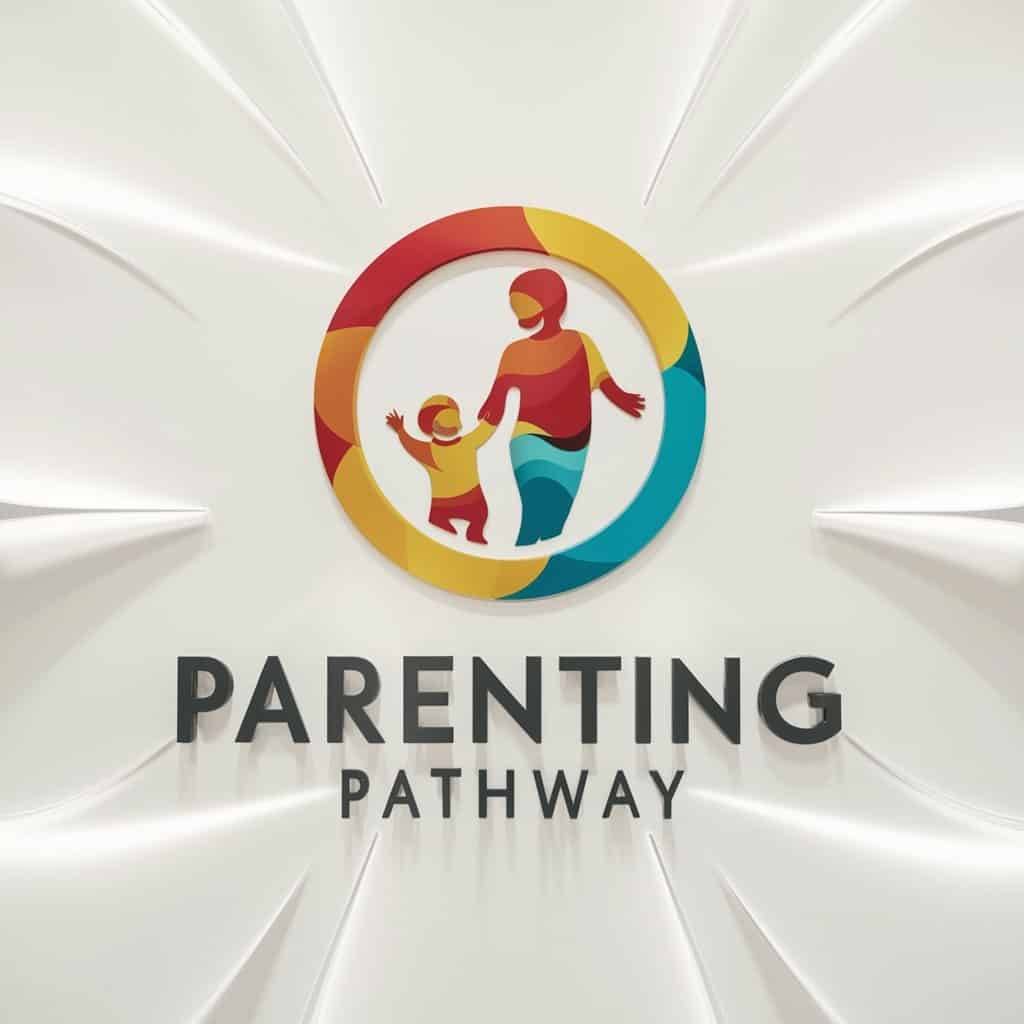At What Age Should A Child See A Psychologist Or Mental Health Specialist?
Back to Blog
Recognizing Early Signs: When and Why Children Might Need Psychological Support
Parenting involves understanding and addressing your child’s emotional and psychological well-being. While many parents might hesitate to seek professional mental health support for their children, early intervention can be crucial in addressing potential developmental challenges.
Children experience complex emotional landscapes that aren’t always easily understood by parents or caregivers. Psychological challenges can manifest differently in young individuals compared to adults, making professional assessment essential. Recognizing subtle signs that might indicate a need for psychological support is the first step towards ensuring your child’s mental health.
Key Developmental Indicators Requiring Professional Assessment
Several behavioral and emotional markers might suggest a child could benefit from psychological evaluation:
- Persistent mood changes lasting several weeks
- Significant shifts in academic performance
- Unusual withdrawal from social interactions
- Recurring anxiety or unexplained fears
- Aggressive behaviors inconsistent with age
- Difficulty managing emotions
Age-Specific Psychological Support Considerations
Different developmental stages present unique psychological challenges. Preschool-aged children might require support for separation anxiety or early social interaction difficulties. School-age children often need help navigating complex social dynamics, academic pressures, and emerging self-identity.
Adolescents face more nuanced psychological challenges, including identity exploration, peer pressure, and hormonal changes that can significantly impact mental health. Each age group requires a tailored approach to psychological assessment and intervention.
Warning Signs Across Different Age Groups
Parents should remain vigilant about potential psychological concerns throughout childhood. For younger children, signs might include excessive tantrums, regression in developmental milestones, or persistent separation anxiety. Older children and teenagers might display more complex symptoms like prolonged sadness, dramatic changes in eating or sleeping patterns, or unexplained physical complaints.
Professional Assessment Process
When considering psychological support, parents should understand that assessment involves comprehensive evaluation. A qualified child psychologist will typically conduct multiple interviews, potentially involving parents, teachers, and the child. These assessments help create a holistic understanding of the child’s psychological landscape.
Potential Assessment Methods
- Standardized psychological testing
- Behavioral observation
- Family dynamics evaluation
- School performance review
- Interactive play-based assessments
Addressing Potential Barriers
Many parents experience hesitation or stigma surrounding mental health support for children. It’s crucial to recognize that seeking psychological help is a proactive step toward supporting your child’s overall development. Professional intervention doesn’t imply failure but demonstrates commitment to understanding and nurturing your child’s emotional well-being.
Insurance providers increasingly recognize the importance of childhood mental health, with many offering coverage for psychological evaluations and treatments. Parents should explore their healthcare options and consult pediatricians for referrals to specialized child psychologists.
Creating Supportive Environments
Beyond professional intervention, creating a supportive home environment plays a critical role in children’s psychological health. Open communication, emotional validation, and consistent support can significantly complement professional psychological services.
Remember that every child’s psychological journey is unique. Professional support should be viewed as a collaborative process between parents, children, and mental health professionals, aimed at nurturing emotional resilience and healthy psychological development.
Developmental Milestones and Mental Health Assessment Indicators
As children grow and develop, parents often wonder about the right time to seek professional mental health support. Understanding the key indicators and developmental milestones can help caregivers make informed decisions about their child’s psychological well-being.
Early Warning Signs in Young Children
Recognizing potential mental health concerns begins with observing a child’s behavioral patterns and emotional responses. Children as young as three or four may display signs that warrant professional assessment:
- Persistent excessive anxiety or fear
- Significant changes in sleep or eating patterns
- Difficulty socializing with peers
- Extreme mood swings
- Regression in previously mastered developmental skills
Age-Specific Mental Health Considerations
Different developmental stages present unique psychological challenges. Parents should pay attention to specific indicators across various age groups:
Preschool Years (3-5)
During these formative years, children are developing critical social and emotional skills. Red flags might include:
- Inability to control emotions
- Extreme separation anxiety
- Frequent aggressive behaviors
- Consistent difficulty following simple instructions
Early Childhood (6-8)
School-age children encounter more complex social dynamics. Potential concerns include:
- Persistent academic struggles
- Social isolation
- Low self-esteem
- Unexplained physical complaints
- Difficulty maintaining friendships
Preteen Years (9-12)
Emerging adolescence brings significant emotional and social transitions. Warning signs may encompass:
- Signs of depression
- Dramatic changes in peer relationships
- Emerging anxiety disorders
- Self-esteem challenges
- Early signs of potential learning disabilities
Trauma and Environmental Factors
Certain life experiences can significantly impact a child’s mental health, necessitating professional intervention:
- Parental divorce
- Death of a family member
- Chronic illness
- Bullying
- Significant family conflicts
- Exposure to violence or abuse
Professional Assessment Recommendations
While every child is unique, mental health professionals suggest considering evaluation when:
- Behavioral changes persist for more than several weeks
- Academic performance dramatically declines
- Social interactions become consistently problematic
- The child exhibits persistent emotional distress
- Family dynamics suggest potential psychological challenges
Screening and Evaluation Process
A comprehensive mental health assessment typically involves:
- Detailed medical history review
- Behavioral observation
- Psychological testing
- Interviews with parents and caregivers
- Potential collaboration with school professionals
Importance of Early Intervention
Timely mental health support can dramatically improve long-term outcomes. Professional intervention helps children:
- Develop healthy coping mechanisms
- Understand and manage emotions
- Build resilience
- Improve social skills
- Address potential underlying conditions
Choosing the Right Professional
When seeking mental health support, consider:
- Child psychologists specializing in developmental issues
- Licensed clinical social workers
- Child psychiatrists
- Pediatric mental health counselors
Parents should prioritize professionals with specific experience in child and adolescent mental health, ensuring a compassionate and understanding approach.
Modern mental health support focuses on holistic well-being, recognizing that early identification and support can prevent more complex psychological challenges in later years. By remaining observant, proactive, and supportive, caregivers can help children navigate their emotional landscapes effectively.
Navigating Parental Concerns: Identifying Potential Psychological Challenges
As parents, understanding the psychological well-being of children can be challenging. Recognizing early signs of potential mental health concerns is crucial for providing timely support and intervention. Children experience complex emotional landscapes that may not always be immediately apparent to caregivers.
Early Warning Signs of Psychological Challenges
Parents should remain attentive to significant behavioral changes that might indicate underlying psychological issues. Some critical indicators include:
- Persistent sadness or withdrawal from social interactions
- Dramatic shifts in academic performance
- Unexplained physical symptoms like frequent headaches or stomachaches
- Excessive anxiety or recurring fears
- Significant changes in sleeping or eating patterns
Age-Specific Psychological Considerations
Different developmental stages present unique psychological challenges. Toddlers might struggle with emotional regulation, while school-age children could experience social anxiety or learning difficulties. Adolescents frequently encounter complex emotional and identity-related issues.
Developmental Milestones and Mental Health
Each age group requires tailored psychological assessment approaches. Young children might benefit from play-based therapy, whereas teenagers often respond better to direct conversational methods. Understanding these nuanced differences helps parents seek appropriate professional guidance.
Professional Assessment Strategies
Consulting a child psychologist doesn’t mean something is inherently wrong. Professional evaluations provide comprehensive insights into a child’s emotional and cognitive development. Trained specialists can:
- Conduct standardized psychological assessments
- Identify potential developmental delays
- Recommend targeted intervention strategies
- Provide coping mechanisms for both children and parents
When to Seek Professional Help
Parents should consider professional psychological consultation if their child experiences:
- Prolonged emotional distress lasting more than two weeks
- Significant behavioral changes impacting daily functioning
- Traumatic experiences affecting emotional stability
- Persistent learning or social interaction challenges
Creating Supportive Environments
Psychological well-being extends beyond professional interventions. Creating nurturing home environments plays a critical role in children’s mental health. Open communication, consistent emotional support, and understanding contribute significantly to psychological resilience.
Parental Involvement and Emotional Intelligence
Parents can actively support their children’s mental health by:
- Practicing active listening
- Validating their child’s emotions
- Modeling healthy emotional expression
- Maintaining consistent routines
Technology and Mental Health Awareness
Modern technological advancements have introduced new dimensions to childhood psychological experiences. Increased screen time, social media interactions, and digital pressures can significantly impact mental health. Parents must remain informed about potential technological influences on psychological development.
Screening and Early Detection
Regular psychological screenings can help identify potential challenges before they escalate. Schools, pediatricians, and mental health professionals can collaborate to provide comprehensive assessments and support systems.
Navigating children’s psychological landscapes requires patience, understanding, and proactive approaches. By recognizing potential challenges early, seeking professional guidance when necessary, and maintaining supportive environments, parents can significantly contribute to their children’s emotional well-being and long-term psychological health.
Professional Guidance: Selecting the Right Mental Health Specialist for Children
Navigating the complex world of children’s mental health requires careful consideration and thoughtful approach. Parents and guardians play a crucial role in recognizing potential signs that indicate a child might benefit from professional psychological support.
Understanding when and how to seek mental health assistance for children involves multiple considerations. Early intervention can significantly impact a child’s emotional development, social skills, and overall psychological well-being. Recognizing potential warning signs is the first step in providing appropriate support.
Key Indicators for Professional Mental Health Assessment
- Persistent changes in behavior or mood
- Significant academic performance decline
- Social withdrawal or isolation
- Unexplained physical symptoms like frequent headaches or stomachaches
- Difficulty managing emotions or expressing feelings
- Experiencing traumatic events or major life transitions
Different age groups require specialized approaches when addressing mental health concerns. Toddlers and preschoolers might exhibit challenges through behavioral changes, while school-aged children could demonstrate emotional struggles through academic performance or social interactions.
Age-Specific Mental Health Considerations
Early Childhood (Ages 2-5)
During these formative years, children develop fundamental emotional regulation skills. Professional intervention can help address potential developmental delays, attachment issues, or early signs of anxiety and behavioral disorders. Play therapy and parent-child interaction techniques are often effective strategies for this age group.
Middle Childhood (Ages 6-12)
This developmental stage involves complex social interactions and academic pressures. Children might experience challenges related to self-esteem, peer relationships, and emerging emotional complexity. Cognitive-behavioral therapies can be particularly beneficial in helping children develop coping mechanisms and emotional intelligence.
Adolescence (Ages 13-18)
Teenagers encounter significant psychological transitions, including identity formation, hormonal changes, and increased social pressures. Mental health professionals specializing in adolescent psychology can provide critical support during this challenging period.
Selecting the Right Mental Health Professional
Choosing an appropriate specialist involves considering several crucial factors:
- Verify professional credentials and specialization
- Assess experience working with children
- Consider the child’s specific needs and personality
- Evaluate communication style and approach
- Ensure comfortable rapport between child and professional
Types of Mental Health Professionals for Children
- Child Psychologists: Specialize in developmental psychology and childhood mental health
- Child Psychiatrists: Medical doctors who can prescribe medication if necessary
- School Counselors: Provide initial assessment and referral services
- Child Therapists: Offer specialized counseling techniques
Parents should remain actively involved throughout the mental health assessment and treatment process. Open communication, patience, and supportive environments are essential for helping children navigate psychological challenges.
Insurance coverage, accessibility, and cultural competence are additional factors to consider when selecting a mental health professional. Many practitioners offer initial consultations to help families determine the most appropriate treatment approach.
Remember that seeking professional help is a sign of strength, not weakness. Early intervention can prevent long-term psychological challenges and support healthy emotional development. By remaining observant, compassionate, and proactive, parents can help their children develop robust mental health strategies.
Long-Term Benefits of Early Psychological Intervention and Support
Addressing mental health concerns in children at an early stage can create transformative pathways for lifelong emotional well-being and personal development. Early psychological intervention provides crucial support that helps children navigate complex emotional landscapes, develop resilience, and build strong coping mechanisms.
When children receive timely psychological support, they learn essential emotional regulation skills that become foundational to their future mental health. These interventions can help identify and address potential challenges before they escalate, preventing more serious psychological issues from developing later in life.
Understanding Developmental Psychological Needs
Children experience numerous developmental transitions that can significantly impact their emotional and psychological states. Professional psychological support during these critical periods can help children:
- Understand and express their emotions effectively
- Develop healthy communication strategies
- Build self-confidence and positive self-image
- Learn adaptive problem-solving techniques
- Manage stress and anxiety constructively
Critical Signs Indicating Psychological Assessment
Parents and caregivers should be attentive to specific behavioral and emotional indicators that might suggest a child could benefit from professional psychological support. These signs include:
- Persistent changes in mood or behavior
- Significant academic performance decline
- Social withdrawal or extreme difficulty making friends
- Unexplained physical symptoms like frequent headaches or stomachaches
- Excessive fears or persistent anxiety
- Aggressive behaviors or emotional outbursts
Neurological and Cognitive Development Insights
Research demonstrates that early psychological interventions can positively influence neurological pathways. By addressing potential psychological challenges during childhood, specialists can help reshape neural connections, promoting healthier cognitive and emotional development.
The brain’s neuroplasticity during childhood makes this period incredibly receptive to therapeutic interventions. Professional psychological support can help children:
- Rewire negative thought patterns
- Develop stronger emotional intelligence
- Learn effective self-regulation techniques
- Build resilience against future psychological challenges
Tailored Intervention Strategies
Professional psychologists utilize age-appropriate techniques to engage children effectively. These might include play therapy, art-based interventions, cognitive-behavioral approaches, and family counseling, ensuring that the support feels comfortable and non-threatening for young patients.
Long-Term Psychological Investment
Early psychological support isn’t merely about addressing immediate concerns but represents a significant investment in a child’s future mental health. Children who receive timely psychological interventions often demonstrate:
- Enhanced emotional intelligence
- Better stress management skills
- Improved interpersonal relationships
- Greater academic and social adaptability
- Reduced risk of developing chronic mental health issues
Collaborative Support Ecosystem
Effective psychological intervention requires a holistic approach involving parents, educators, and healthcare professionals. By creating a supportive, understanding environment, children can feel safe exploring their emotions and developing critical life skills.
Each child’s psychological journey is unique, and professional support can provide personalized guidance tailored to individual needs. Recognizing and addressing psychological challenges early empowers children to build strong emotional foundations that will serve them throughout their lives.
Key Takeaway:
Key Takeaway: Understanding Childhood Mental Health Support
Parents play a crucial role in recognizing and addressing their child’s mental health needs, and early intervention can be transformative in a child’s psychological development. The journey of supporting a child’s mental health begins with keen observation, understanding developmental milestones, and proactively seeking professional guidance when necessary.
Children experience complex emotional landscapes that can be challenging to navigate. While there’s no universal age when every child should see a psychologist, parents should remain attuned to significant behavioral changes, emotional struggles, or developmental concerns. Key indicators might include persistent anxiety, significant mood shifts, social withdrawal, academic performance changes, or difficulties in emotional regulation.
Developmental milestones serve as critical reference points for mental health assessments. Between ages 3-6, children develop foundational emotional skills, and any notable deviations might warrant professional evaluation. Similarly, pre-teen and teenage years present unique psychological challenges where professional support can be immensely beneficial.
Parental intuition combined with professional expertise creates a powerful approach to children’s mental health. Concerns such as trauma, family disruptions, learning difficulties, or unexplained behavioral changes should prompt thoughtful consideration of psychological assessment. It’s essential to approach these evaluations without stigma, viewing them as proactive healthcare rather than a problem indicator.
When selecting a mental health specialist, parents should prioritize professionals specializing in child and adolescent psychology. Credentials, experience, and a child-friendly approach are critical factors. The right specialist will create a safe, supportive environment that allows children to express themselves comfortably.
The long-term benefits of early psychological intervention cannot be overstated. Timely support can help children:
- Develop robust emotional intelligence
- Build healthy coping mechanisms
- Improve social skills
- Enhance academic performance
- Prevent potential long-term mental health challenges
Ultimately, a holistic approach that involves parents, educators, and mental health professionals creates the most supportive environment for a child’s psychological well-being. Regular communication, patience, and unconditional support are key to helping children navigate their emotional journeys successfully.
By recognizing potential challenges early, seeking professional guidance when needed, and maintaining an open, non-judgmental approach, parents can significantly contribute to their child’s mental health and overall development.
Conclusion
Supporting a child’s mental health is a critical aspect of their overall well-being and development. Parents play a pivotal role in recognizing and addressing potential psychological challenges early on. By staying attuned to developmental milestones, behavioral changes, and emotional signals, families can take proactive steps to ensure their child receives the right support at the right time.
Seeking professional help is not a sign of weakness but a testament to a parent’s commitment to their child’s holistic growth. Mental health specialists trained in child psychology can provide invaluable insights, strategies, and interventions that can significantly impact a child’s emotional resilience, social skills, and future success.
The journey of mental health support is collaborative, involving parents, educators, and healthcare professionals working together to create a supportive environment. Early intervention can prevent minor challenges from developing into more complex psychological issues, setting the foundation for better emotional regulation, self-understanding, and overall mental wellness.
Every child is unique, and their mental health needs will vary. What remains constant is the importance of compassionate, informed, and timely support. By maintaining open communication, reducing stigma around mental health, and being willing to seek professional guidance when needed, parents can help their children develop the emotional tools necessary to navigate life’s challenges.
Ultimately, investing in a child’s mental health is an investment in their future. It empowers them to build strong relationships, develop resilience, and approach life with confidence and emotional intelligence. The right support at the right time can make a transformative difference in a child’s life trajectory.




Leave a Reply